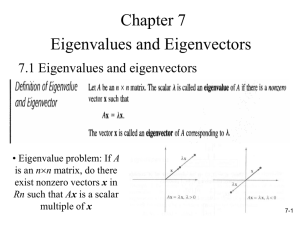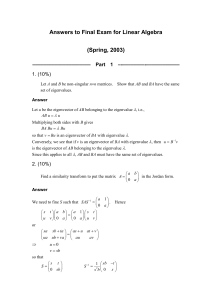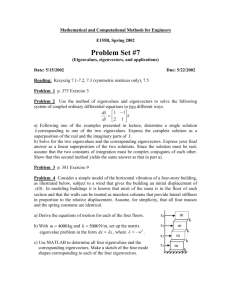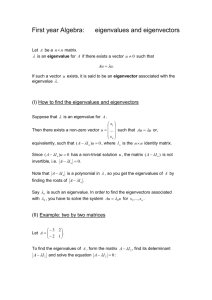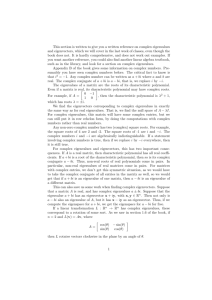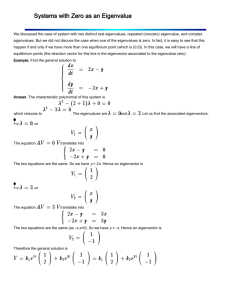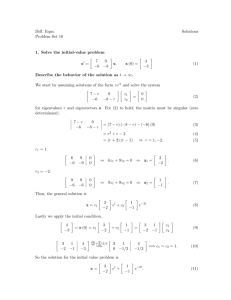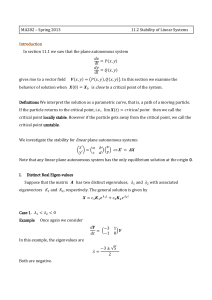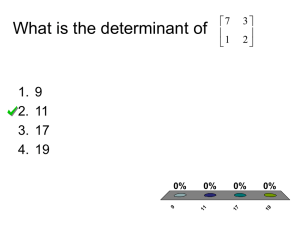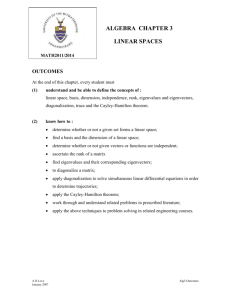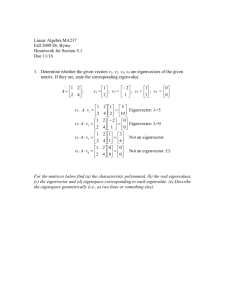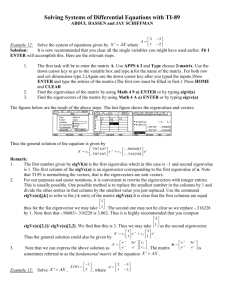Section 8-2 - De Anza College
advertisement
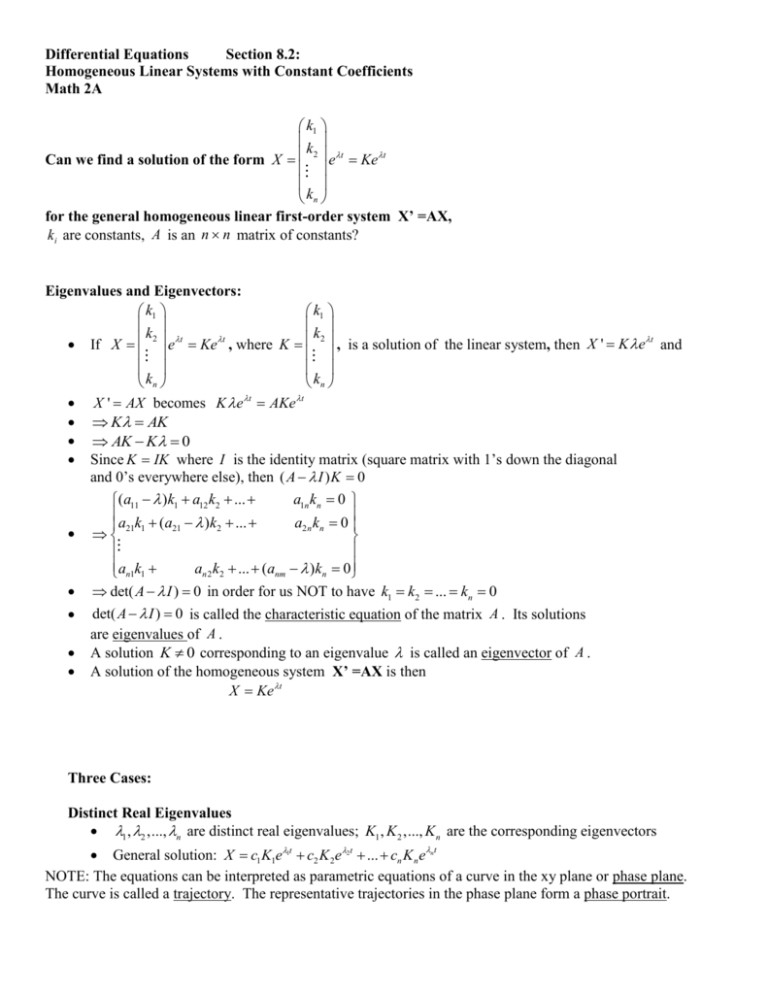
Differential Equations Section 8.2: Homogeneous Linear Systems with Constant Coefficients Math 2A k1 k Can we find a solution of the form X 2 et Ket kn for the general homogeneous linear first-order system X’ =AX, k i are constants, A is an n n matrix of constants? Eigenvalues and Eigenvectors: k1 k1 k2 t k t If X e Ke , where K 2 , is a solution of the linear system, then X ' K et and kn kn t t X ' AX becomes K e AKe K AK AK K 0 Since K IK where I is the identity matrix (square matrix with 1’s down the diagonal and 0’s everywhere else), then ( A I ) K 0 a1n kn 0 (a11 )k1 a12 k2 ... a k (a )k ... a2 n kn 0 21 1 21 2 an1k1 an 2 k2 ... (anm )kn 0 det( A I ) 0 in order for us NOT to have k1 k2 ... kn 0 det( A I ) 0 is called the characteristic equation of the matrix A . Its solutions are eigenvalues of A . A solution K 0 corresponding to an eigenvalue is called an eigenvector of A . A solution of the homogeneous system X’ =AX is then X Ke t Three Cases: Distinct Real Eigenvalues 1 , 2 ,..., n are distinct real eigenvalues; K1 , K2 ,..., K n are the corresponding eigenvectors General solution: X c1 K1e1t c2 K 2e2t ... cn K n ent NOTE: The equations can be interpreted as parametric equations of a curve in the xy plane or phase plane. The curve is called a trajectory. The representative trajectories in the phase plane form a phase portrait. dx 2x 2 y dt Example: dy x 3y dt Repeated Eigenvalues There are eigenvalues of multiplicity m General solution contains the linear combination c1 K1e1t c2 K 2e2t ... cm K me mt ; m n ; K1 , K 2 ,..., K m are linearly independent eigenvectors corresponding to an eigenvalue 1 of multiplicity m n Only one eigenvector corresponding to the eigenvalue 1 of multiplicity m n ; There are m linearly independent solutions of the form X 1 K11e1t 1t 1t X 2 K 21te K 22e ; K ij are column vectors t m 1 1t t m2 1t 1t X K e Km2 e ... K mn e m1 m (m 1)! ( m 2)! 1 0 0 Example: X ' 0 3 1 X 0 1 1 Complex Eigenvalues 1 i, 2 i are complex eigenvalues of A , the coefficient matrix 0, i 2 1 A is the coefficient matrix having real entries of the homogeneous system; K1 is the eigenvector corresponding to the complex eigenvalue 1 i , , are real; Solution vectors are K1e 1t and K1e1t ; K1e1t K1e t (cos( t ) i sin( t ) K1e1t K1et (cos( t ) i sin( t ) Real solutions corresponding to a complex eigenvalue: A is the coefficient matrix of the homogeneous system; 1 i is a complex eigenvalue of A 1 t B1 2 ( K1 K1 X 1 B1 cos( t ) B2 sin( t ) e are solutions on , Then t X 2 B2 cos( t ) B1 sin( t ) e B i ( K K 2 1 1 2 dx dt 2 x y 2 z dy Example 1: 3x 6 z dt dz dt 4 x 3z 6 1 Example 2: X ' X, 5 4 2 X (0) 8
